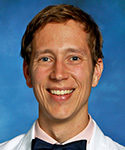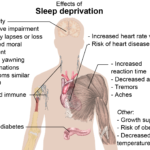December 20th, 2018
Medicine Robbed Me of My 20s
Scott Hippe, MD
“Medicine robbed me of my 20s.” I’ve heard the line many times in my medical training. It often comes accompanied by a long sigh, a slow sip of coffee, and a glazed stare off into the distance. “Imagine what could’ve been,” the seasoned physician muses, “if I had my 20s to do over, without medicine.”
But now, I am mere months away from leaving my 20s behind. To be completely honest, I often feel similar to those physicians I heard earlier. I see my friends outside medicine doing exciting things and visiting exciting places. And then there is my brother, a teacher, who is off work for summers and every single family holiday. Sometimes — especially on 28-hour shifts — I wonder if medicine is really worth it. I wonder if the journey is leading me to my best self.
Lamenting the things I’ve missed
We have a maladaptive tendency as humans to focus on that which is not, rather than appreciating the good in what actually is; we define ourselves by what we miss, rather than by what we catch. In this vein, I started making a list of things I missed in my 20s. Then I got depressed. But here is what I had, to start:
- Missed lunch today and many days; man, am I grumpy today
- Missed going out last Friday
- Missed my alarm and a call to deliver one of my pregnant patients
- Missed calling my mum on her birthday
- Yikes, missed zipping up my fly before ICU rounds
- Missed pickup basketball on Saturday, and the Saturday before that
- Missed registering for the CME conference all my friends attended
- Missed being home for the holidays
- Missed diagnoses, including DKA, stroke, and heart failure
- Missed family weddings, reunions, and a tragedy
- Missed the chance to travel abroad with friends
What misses mean for resident wellness
Focusing on misses like this has a negative effect, not just on big-picture life satisfaction, but also on day-to-day wellness. The bitterest pill to swallow in residency for me is not the long hours. The most soul-crushing piece is being drawn away from places you want to be and people who are dear.
There is dissonance here: I desire to be well in my life and work, but medical training is challenging and exceedingly time-consuming. The realities of residency take me away from the things that make me “well.”
Residencies are waking up to the idea of wellness. At my residency, we have been trying to increase dedicated administrative time to decrease charting outside of clinic. Our wellness committee puts on quarterly events to build community. We have a supportive faculty.
Having adequate time to sleep, exercise, and experience a loving community forms the perfect foundation. Yet without feeling good about the work, efforts to improve life outside of residency responsibilities ultimately fall short at achieving whole-person wellness. We just work too stinking much for this not to be the case.
Encountering a low point
Long hours and some uncertainty about my future after residency caught up to me recently. While transient, this bump in the road put me in an anxious and sleep-deprived condition. My work felt devoid of meaning. Fifteen-plus hour workdays are long ones if you feel empty.Without prompting, the wife of one of my middle-aged male patients said “Dr. Hippe, you’re the first doctor my husband has been able to tolerate in 50 years.” That hint of positive connection made me start paying attention again. The next day, two infants I’d delivered in previous months came in for checkups. They were thriving, their families were happy, and I shared in their joy of new life. Unknowingly and in subtle ways, my patients helped me find my center at work again.
Finding wellness at work
An alumnus from my residency recently sent a message about wellness. She quoted an article published in JAMA, in which the author relates “I can think of no other dichotomy so damaging to a young physician or the patients he or she will treat, than to imagine that life begins only once a shift has ended” ( This former resident then added her own thoughts: “How can we re-frame and experience work as an enjoyable part of life rather than something entirely separate from who we are and how we live?”
What I appreciate most about the question is that there is no singular best answer. Personally, I often find wellness at work through connecting with my patients. Other times it has been support from my resident community, or the exhilaration of becoming competent at a new procedure. The answer to the question will be different for everybody, and can change along the way.
I am sure of one thing, though: the answer to what makes us well at work is worth pursuing, both individually and as groups of residents and physicians.





If you can’t find happiness in medicine, why did you go into medicine? You should have gone into a field that allows you to maintain the millennial lifestyle…If you are not dedicated, get out. This ‘insight’ is indeed insightful. These people are going to take care of me someday?? This is the embodiment of narcissistic teachings of the new left.
I have often thought the same – that I “donated my 20’s to science”. I begrudged happy people in the park playing frisbee, knowing that if they had an accident someone like me would be ready to take care of them. The few days really “off” spent cycling up the shore of Lake Michigan helped. Would I do it over again? Now 66 and retired, I am glad of the times I’ve had with patients when considerate listening helped us both. But maybe, just maybe, I would have been just as happy working with plants, or painting. But I have better stories to tell, some shocking, some happy-ever-after, after leaving medicine to pursue those background hobbies with a passion. In the end medicine makes us what we are, but doesn’t define us.
I can remember that condition very well even though I am in my 80’s. However, the end result was worth it and I loved practising for the next almost 50 years.
I am my patient’s doctor. And even now that I do not provide their care, I find that they still feel that I am their doctor. I have shared something with them that few others are privileged to share. My family can see that and fortunately appreciate it as well. My patients appreciate what my family has given up for them.
No, medicine did not rob me, it gave me something priceless.
This resident is not thinking clearly. I loved residency- General Surgery. Sure, there were things on the outside I missed, but the intellectual stimulation of training, the relationships I made with my colleagues, the nurses, patients, and everyone else in the hospital made me a better person- and none of this would have been present on the basketball court. Yes, medical training requires trade-offs, but I am thankful for the opportunities it gave me, which are not available to people outside the medical community.
I am a 78 year old Professor Medicine still providing consultatio and regularlyupdating.Pts are my best friends and their enjoyment makes you happiest and fills your pockets and all needs.I look forward to next working on my holidays.Join them in their life providing the medical support.Enjoy medical support to humanity you are gifted with fortunately
As a former chief resident myself… you could have declined that position and had a LOT more time… for other things.